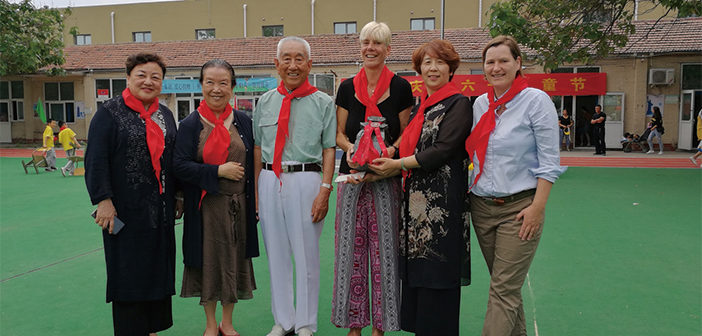1998 was a special year. The Good Friday Peace Agreement was signed in Northern Ireland, Russia’s banking system suffered a meltdown when the rouble lost 70 percent of its value, and UNICEF produced their report “The State of the World’s Children.” But what also happened in this particular year was that a documentary film about the hard life of a teacher in the countryside near Beijing was made. Some may deem that event unimportant in comparison to Mother Russia’s little crisis, but this short film started a chain reaction. It was at this time that a bunch of German teachers decided it would be the perfect time to interview a local Chinese teacher about his suffering, and they were so impressed that Candlelight was born.
When NDR (Northern German Broadcasting) aired this documentary in 1999, the former principals Helma and Siegfried Meschede of the German Embassy School of Beijing (GSB) decided to become members of the Chinese organization Candlelight, which supported teachers in small villages in disadvantaged Chinese provinces. But when the Chinese organization was disbanded in 2004, Candlelight became the social project of the GSB.
Why is it called Candlelight? The name was inspired by a saying from Confucius: “It is better to kindle one single little light than to curse the darkness.” At first, Candlelight supported the Houcheng School in a mountain village on the outskirts of Beijing. Following this, on June 1 2009, they also took the Xingzhi School for migrant workers’ children under their wings. For a while, they were the benefactors of these two schools, but in February 2012, disaster struck. The Chinese Ministry of Education closed Houcheng. Beaten down and sad, the Candlelight team decided to focus all of their energy on the Xingzhi School. Currently, the heads of the organization are Ulrike Möckelmann and her colleague Nancy Kou. They both spend a lot of time on the project and have visited the school numerous times since they began their positions in 2014.
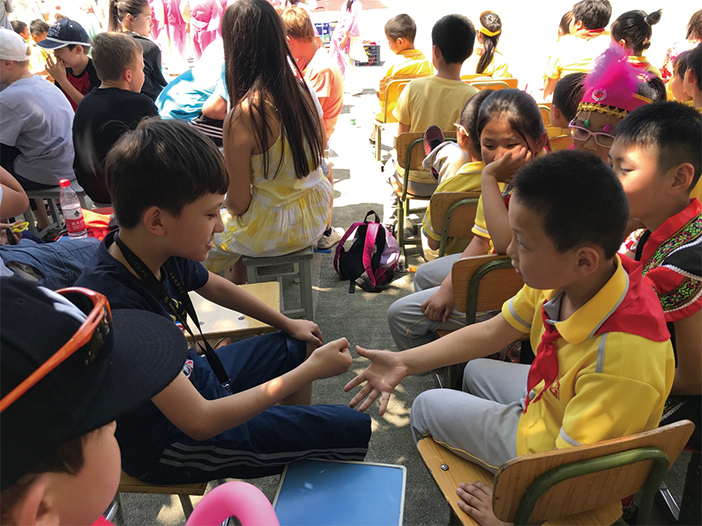 When asked what makes Candlelight different from other charity organizations, Ulrike Möckelmann answered: “This social project is special, because students help and enrich other students. Through their cooperation during their mutual visits, Chinese and German students can learn a lot from each other. Direct school visits make the differences and similarities of the GSB and the immigrant workers school experienceable and unique.”
When asked what makes Candlelight different from other charity organizations, Ulrike Möckelmann answered: “This social project is special, because students help and enrich other students. Through their cooperation during their mutual visits, Chinese and German students can learn a lot from each other. Direct school visits make the differences and similarities of the GSB and the immigrant workers school experienceable and unique.”
The migrant worker school is located in the Daxing District in the south of Beijing. It is a school where migrant worker parents can leave their kids during the day while they work in the bustling city of Beijing. For many parents, this is a better alternative than leaving their children at home with their grandparents and only seeing them once a year. The school has a capacity of up to 1,200 students. 40 teachers have to cope with this incredible number of pupils. In every class, there are about sixty students, who, believe it or not, are very quiet during their lessons and seem to be fully attentive to their teacher’s lesson, which is a level of control that’s unheard of in many schools.
At GSB, the entire school is involved in fundraising for their partner institution at Xingzhi. In the library, homemade jewelry is sold and the profits given to the migrant worker school. There is also a flea market twice a year, where the artwork of the very talented Xingzhi students can be purchased.
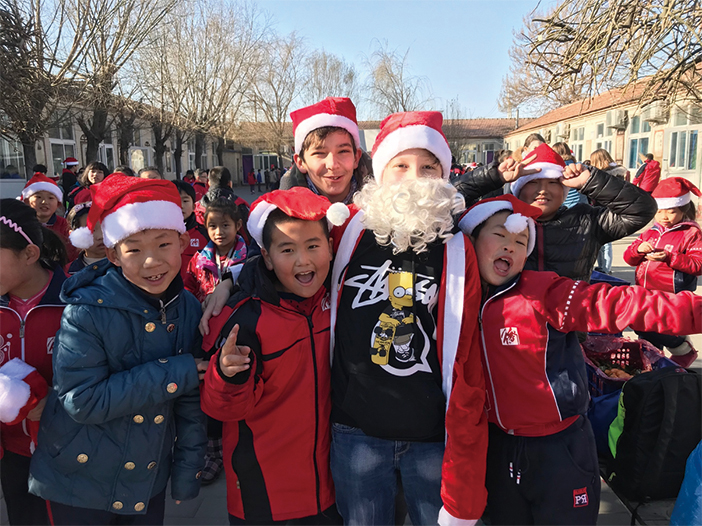 The German teachers were so impressed by the Chinese students´ artwork that they wanted the German pupils to be able to learn something from them. One weekend a year, the students meet at a remote park in between the two schools. Here we GSB students get to see the full talent of our Xingzhi counterparts, as they recreate beautiful natural landscapes with ease on a canvas. Both art teachers and some college kids come along to help the students to draw. And there we sit together in the sun, drawing and exchanging experiences with each other.
The German teachers were so impressed by the Chinese students´ artwork that they wanted the German pupils to be able to learn something from them. One weekend a year, the students meet at a remote park in between the two schools. Here we GSB students get to see the full talent of our Xingzhi counterparts, as they recreate beautiful natural landscapes with ease on a canvas. Both art teachers and some college kids come along to help the students to draw. And there we sit together in the sun, drawing and exchanging experiences with each other.
But that isn´t all. During the 2009-2010 school year, a new program called Sozialprojekt (“Social Project”) was specially created for the seventh-graders at the German School. It aims to inspire students to make money for and interact with the children of migrant workers. They have fundraisers and develop food and game stands during their flea markets.
Fundraising has become quite competitive between the different stands. The seventh graders earn about RMB 5,000 on average at one single flea market. Altogether, including the money from the jewelry, the cake stands, and private contributions, Candlelight donates about RMB 60,000 to 90,000 every year.
GSB students also regularly visit Xingzhi. In October, the schools have a sports competition, and on December 6, the German students drop by the Xingzhi School with St. Nicolaus, to bring them some presents in their little Christmas hats. Mrs. Möckelmann explained: “St. Nicolaus Day is supposed to bring German traditions to the Chinese school. With lots of fun and engagement, seventh graders can spread some Christmas spirit in the partner school.” And spread Christmas spirit they do, as the Chinese students are always delighted when they open their presents. Mostly, there are chocolate Santas and other candy, along with oranges and walnuts, in the Christmas hats.
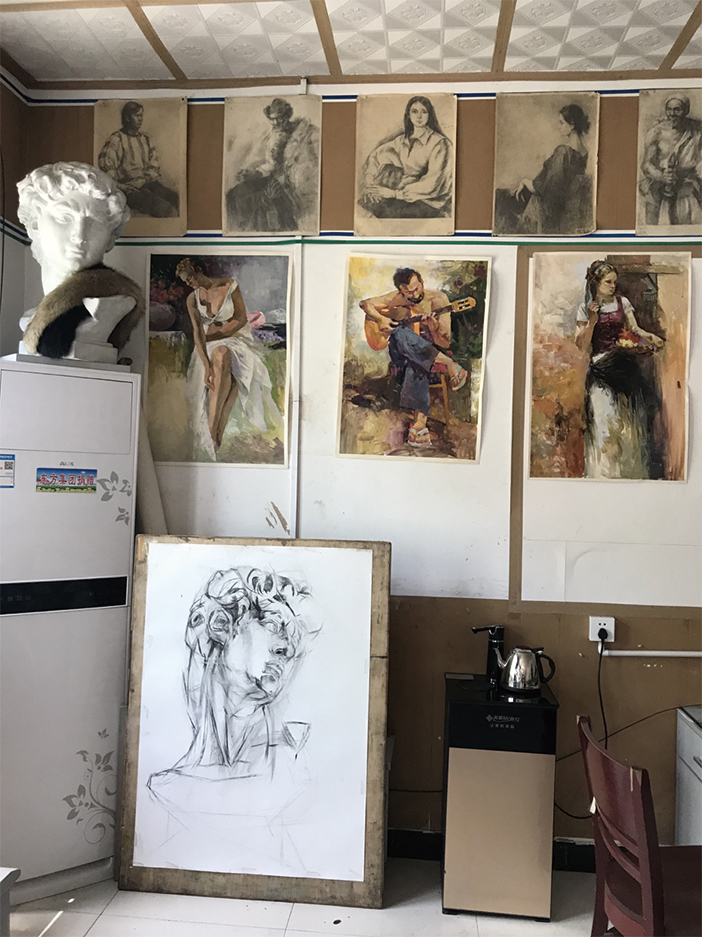 During the summer, towards the end of the school year, the Chinese pupils visit the German School. The German students plan a whole day of fun activities in advance and prepare little snacks for the meeting. They enjoy themselves and learn about each other’s lives, while the other teachers grumble about the students not having lessons for a whole day. It’s great fun!
During the summer, towards the end of the school year, the Chinese pupils visit the German School. The German students plan a whole day of fun activities in advance and prepare little snacks for the meeting. They enjoy themselves and learn about each other’s lives, while the other teachers grumble about the students not having lessons for a whole day. It’s great fun!
For me personally, the unique thing about Candlelight is that you can see the change at the school and where the money goes. Mostly they spend it on school supplies like pencils and books, but they also used it to install a heating system in the classrooms and insulation to help out during winter. The change has been dramatic. They have built an entirely new building from the donations we gave them, but more space is needed to accommodate 1,200 students. It is always very pleasing seeing the face of the Chinese children light up when we visit, or when they look at their donations of new clothes.
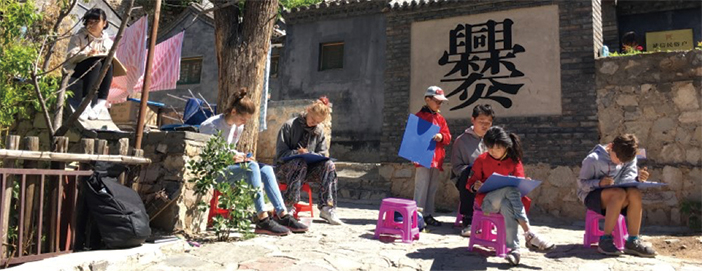 Right now only students, teachers, and parents of the German Embassy School participate in the organization, but it doesn’t have to stay that way. As Mrs. Möckelmann enthusiastically said: “Money and clothes donations are always accepted with pleasure at GSB.”
Right now only students, teachers, and parents of the German Embassy School participate in the organization, but it doesn’t have to stay that way. As Mrs. Möckelmann enthusiastically said: “Money and clothes donations are always accepted with pleasure at GSB.”
Just drop by our school and drop off your contributions with the note: “Candlelight.” Help improve the education of these Chinese pupils now and give them a better future.
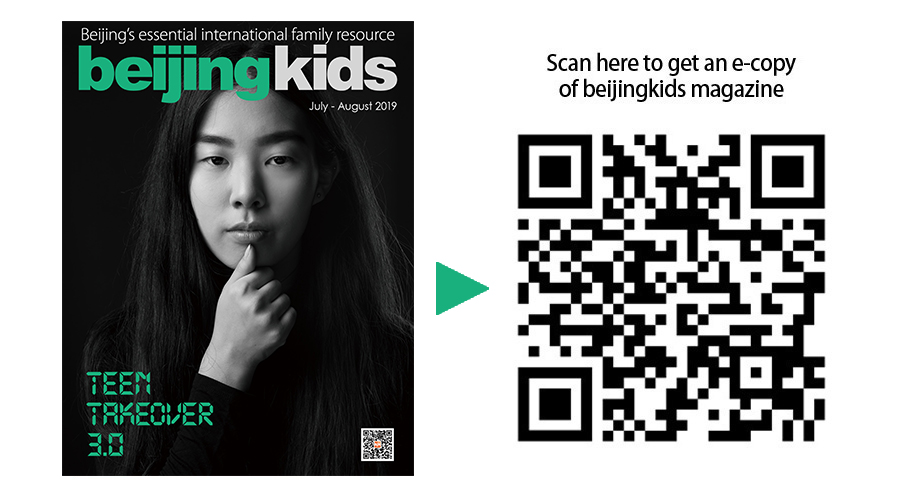
This article appeared in the beijingkids July-August 2019 Teen Takeover issue
Photos: Ulrike Möckelmann

